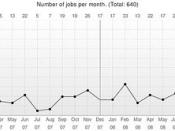Strangers, gods and monsters represent experiences of extremity which bring us to the edge. They subvert our established categories and challenge us to think again. And because they threaten the known with the unknown, they are often set apart in fear and trembling. Exiled to hell or heaven; or simply ostracized from the human community into a land of aliens.
The figure of the 'stranger' - ranging from the ancient notion of 'foreigner' (xenos) to the contemporary category of alien invader - frequently operates as a limit-experience for humans trying to identify themselves over and against others. Greeks had their 'barbarians', Romans their Etruscans, Europeans their exotic overseas 'savages'. The western myth of the frontier epitomizes this, for example, when Pilgrim encounters Pequot on the shores of Massachusetts and asks 'Who is this stranger?' Not realizing, of course, that the native Pequot is asking exactly the same question of the arrivals from Plymouth.
Strangers are almost always other to each other.
'Monsters' also signal borderline experiences of uncontainable excess, reminding the ego that it is never wholly sovereign. Many great myths and tales bear witness to this. Oedipus and the Sphinx. Theseus and the Minotaur. Job and Leviathan. Saint George and the Dragon. Beowulf and Grendel. Ahab and the Whale. Lucy and the Vampire. Ripley and the Alien. Each monster narrative recalls that the self is never secure in itself. 'There are monsters on the prowl', as Michel Foucault writes, 'whose form changes with the history of knowledge'. 1 For as our ideas of self-identity alter so do our ideas of what menaces this identity. Liminal creatures of the unknown shift and slide, change masks. We are of the earth, they whisper, autochthonous. We are carriers of the mark of Cain, hobbled by the Achilles heel of a primal unconscious.


